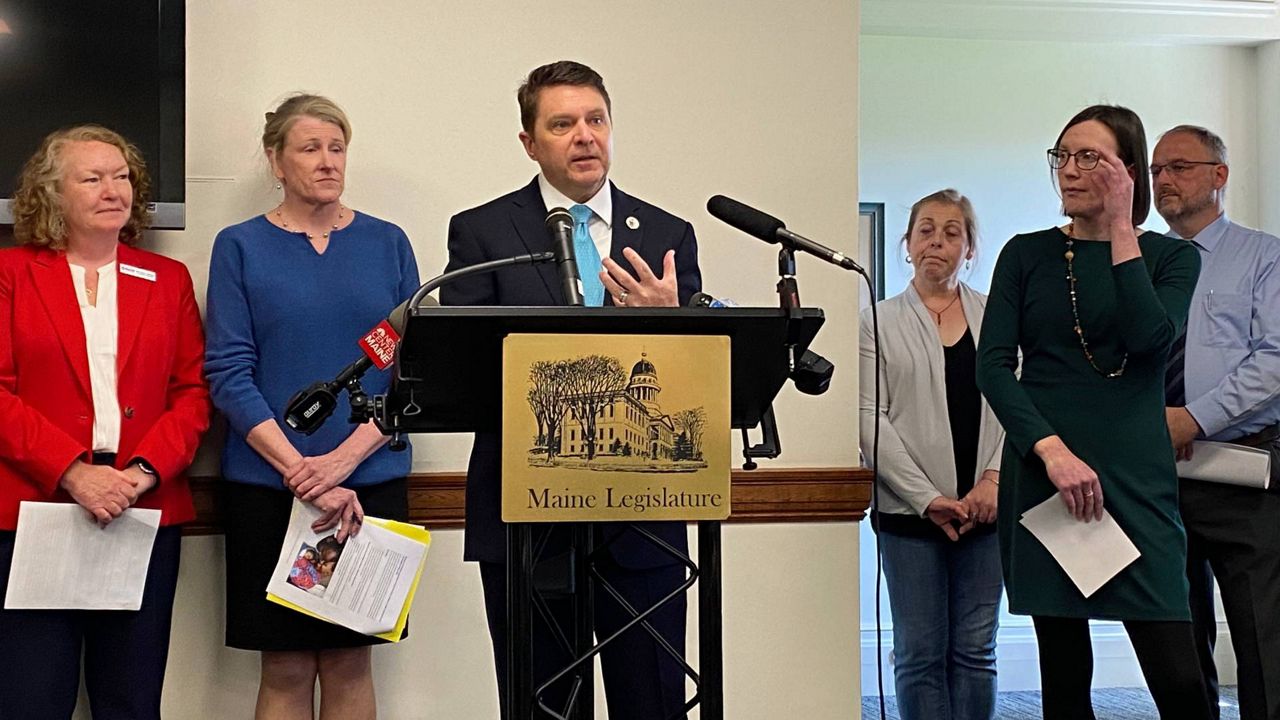A new plan released Tuesday proposes to spend $1 million to educate parents and pump more funds into community organizations throughout Maine to prevent child abuse.
The Maine Child Safety and Family Well-Being Plan is designed to help children and families before they become involved with the child protection system, Maine Department of Health and Human Services Commissioner Jeanne Lambrew said.
“Too often our department meets families and children only when they are in crisis, long after the moment when needed supports could have or should have been provided,” she said during a news conference.
The plan’s release comes as lawmakers are reviewing four child deaths that occurred over the summer of 2021.
The children, all of whom were 4 years old or younger, had contact with the state child welfare system prior to their deaths.
The Legislature’s nonpartisan Office of Program Evaluation and Government Accountability has found that in two of the cases, caseworkers followed existing rules and laws, although some gaps in services were identified.
The reviews in two other cases will be publicly released in the coming months.
The $1 million plan released Tuesday will be part of a new budget set to be released in the coming days by Gov. Janet Mills. It will propose to spend $700,000 on an education campaign for parents and $300,000 for community groups, Lambrew said.
Sen. Jeff Timberlake (R-Turner) said he was disappointed the plan doesn’t focus on addressing mental health needs.
“How far does $1 million go spread across Maine in today’s economy?” he said. “We’ve got a mental health crisis going on in this state beyond belief. And we didn’t even talk about that today. The problem at DHHS today is a mental health crisis for children, for adults.”
Lambrew said the state has earmarked $10 million in the recent budgets for behavioral health service improvements.
She said the plan is focused on four areas:
- Investing in communities to help with things such as local resource centers or help lines, depending on local needs
- Economic security by providing funds for basic needs such as housing and food
- Aggressively implementing a comprehensive plan for behavioral health needs
- Better coordination to make sure families are getting the services they need
One of the major barriers to reaching families in crisis sooner is a reluctance to ask for help, something that will be targeted in the educational campaign, said Melissa Hackett of the Maine Child Welfare Action Network.
“This plan recognizes that parenting is an important and difficult job and that everyone has a role to play in raising the next generation,” she said.
Todd Landry, director of the Office of Child and Family Services, called it “a bold plan” that builds on other state efforts to expand childcare, rebuild the behavioral health system for children and offer peer support for children and their families.
He said the plan calls for additional training for those who are required to call child services if they suspect abuse or neglect. Sometimes, those calls would be better sent to other types of service providers who could help with heating or grocery needs.
“Sometimes they also want to know, ‘Where is this other place I can call?’” he said.
Lambrew said the plan will continue to be a work in progress.
“I don’t think there’s either a dollar or even a year target,” she said. “We did try to say what is feasible in the short run. This is an action plan for now. Everything in this report is something we hope we could deliver on in months, not years.”








)